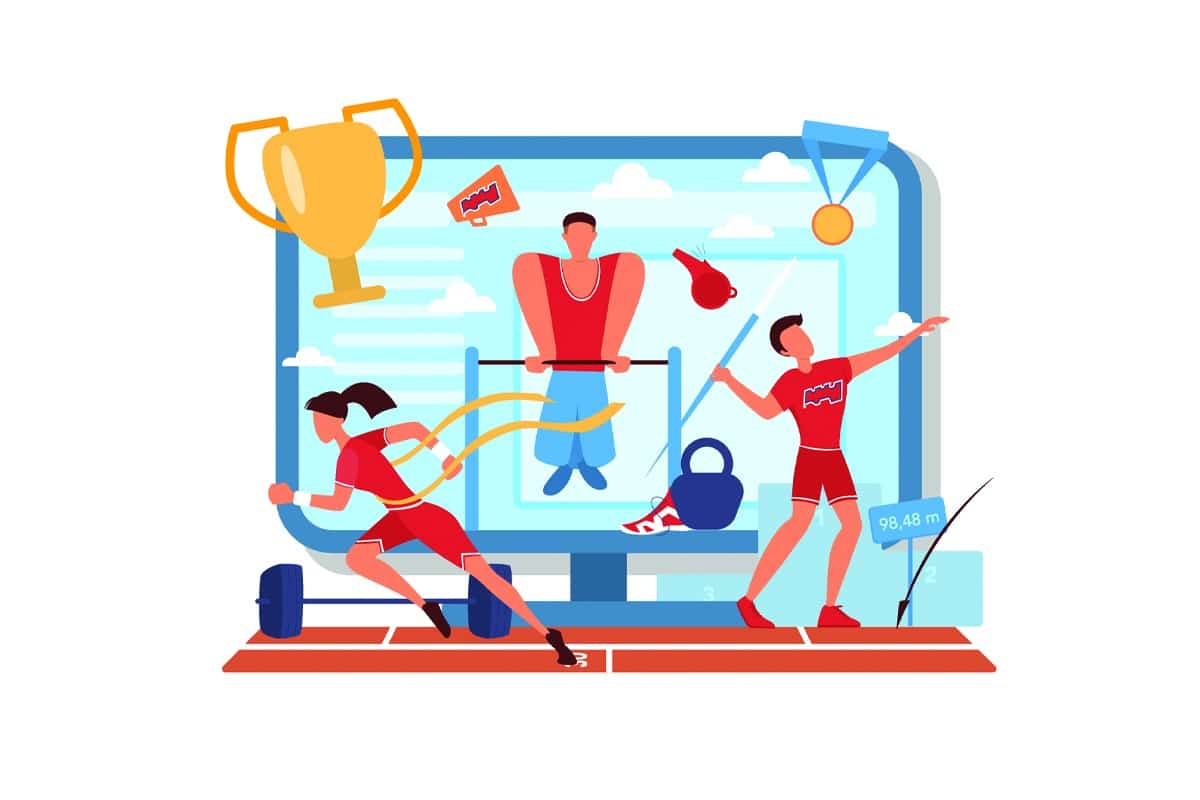John F. Kennedy said, “Intelligence and skills can only function at the peak of their capacity when the body is healthy and strong.”
As educators, we strive to educate the whole child by focusing on the mind, body, and spirit. As such, physical education plays a crucial role in a well-balanced education. P.E. is more than just a chance for students to burn off energy or take a break from core academics; it is a vital component of a student’s development, closely tied to their health, learning, and spiritual well-being.
The Connection Between Movement and Learning
Research has consistently shown that regular physical activity supports improved academic performance. It increases blood flow to the brain, enhances cognitive function, boosts memory retention, and improves mood and focus. Simply put, when students incorporate regular movement into their day, they learn better.
Exercise also helps reduce symptoms of stress, anxiety, and depression—challenges many young people face today. Movement becomes a natural way to support mental well-being, helping students stay emotionally balanced and ready to learn.
In addition, physical education courses promote important life skills such as perseverance, cooperation, self-management, and goal-setting. These are transferable skills that enhance students’ ability to succeed in academic environments and beyond.
What Are the Keys to a Successful Physical Education Program?
A successful physical education program does far more than simply fill time with sports or games. Just like the legs of a well-balanced chair, a P.E. program should stand on the following pillars of instruction: 1) instilling knowledge of health and fitness principles, 2) teaching motor skills and technique, 3) creating habits of regular physical activity, and 4) promoting confidence, enjoyment, and the benefits of regular movement.
Let’s take a closer look at these key elements:
- Training Principles: Beyond learning the rules of a game, students should understand the basics of health and fitness, for example, learning the difference between agility and health-related fitness, how the body responds to exercise, and fundamental principles to make exercise safe and effective.
- Skill Development: P.E. helps students refine motor skills such as coordination, agility, and balance. It should introduce students to a range of movement patterns and techniques. As students increase their proficiency in a variety of skills, they become more confident in activity participation.
- Establishing a Habit of Physical Activity: Physical education should encourage students to be active, both in and out of class. Establishing fitness routines now sets them up for a healthy and active life.
- Promoting Lifelong Fitness: When students discover activities they enjoy and understand the benefits of physical activity, they are more likely to stay active and reap those benefits throughout their lifetime.
Online Physical Education: A Personalized Option
As education evolves, more students are turning to online physical education as a flexible and accessible alternative to traditional gym classes. While it may seem unusual at first, online P.E. can be just as effective in promoting physical health and fitness- and for some students, even more so.
Benefits of Online P.E.
- Flexibility: Students can work at their own pace, choosing when, where, and how to exercise. They can work out at home, in a gym, or outdoors at times that best fit their schedules.
- Self-Management Skills: By requiring students to plan their own workouts, complete assignments remotely, track progress, and meet deadlines, online P.E. helps students develop crucial life skills, such as responsibility, time management, and goal-setting. It can also increase independence and long-term self-motivation—valuable traits for other academic classes, future careers, and everyday life.
- Choice of Activities: Students can select physical activities they enjoy, such as swimming, hiking, cycling, martial arts, or dance. This autonomy increases motivation and helps students develop a lifelong habit of regular movement.
- Family Involvement: Online P.E. students often complete workouts at home, where they can invite parents or siblings to join in. This shared time can foster healthier habits within the family and create opportunities for support and encouragement.
- Individual Accommodations: Online P.E. may be ideal for students with physical limitations, medical conditions, or those who need custom plans. It also helps students who are uncomfortable in locker rooms or team sports settings to participate confidently.
- Scheduling: Many students choose to take P.E. online to create space for other courses in their schedule or to recover missed credits in a manageable way.
- Fitness Education: Through online lessons and personalized assignments, students learn health and fitness principles. They then incorporate those principles into their own exercise programs, experiencing real-world applications firsthand.
- Personalized Feedback: As students work through course content independently, teachers have more time to focus on answering questions, giving proactive guidance, and providing personalized feedback to each student.
- Overcoming School Limitations: For schools facing limited space, equipment or available teachers, online P.E. can be an ideal solution. It can also be easily provided as a summer school offering.
What to Look for in a Quality Online Physical Education Program
Some may mistakenly believe that an online P.E. simply requires students to complete a fitness log. However, similar to a face-to-face class, a quality online physical education class should maintain the same standards of instruction, such as providing fitness education, teaching skills, establishing a regular exercise program, and instilling the benefits of regular activity.
Supporting Lifelong Health
Whether face-to-face or online, physical education is a vital part of a well-rounded education. P.E. helps students develop confidence, self-discipline, and the understanding that caring for their physical health is an essential part of living well. As students experience the joy of movement, discover the benefits of activity, and build skills to manage their own fitness, they are better prepared to carry those lessons beyond school and into adulthood.
Katie Carone is the founder and director of Carone Learning, an accredited curriculum provider and online school specializing in health, physical education, and career courses. www.CaroneLearning.com











